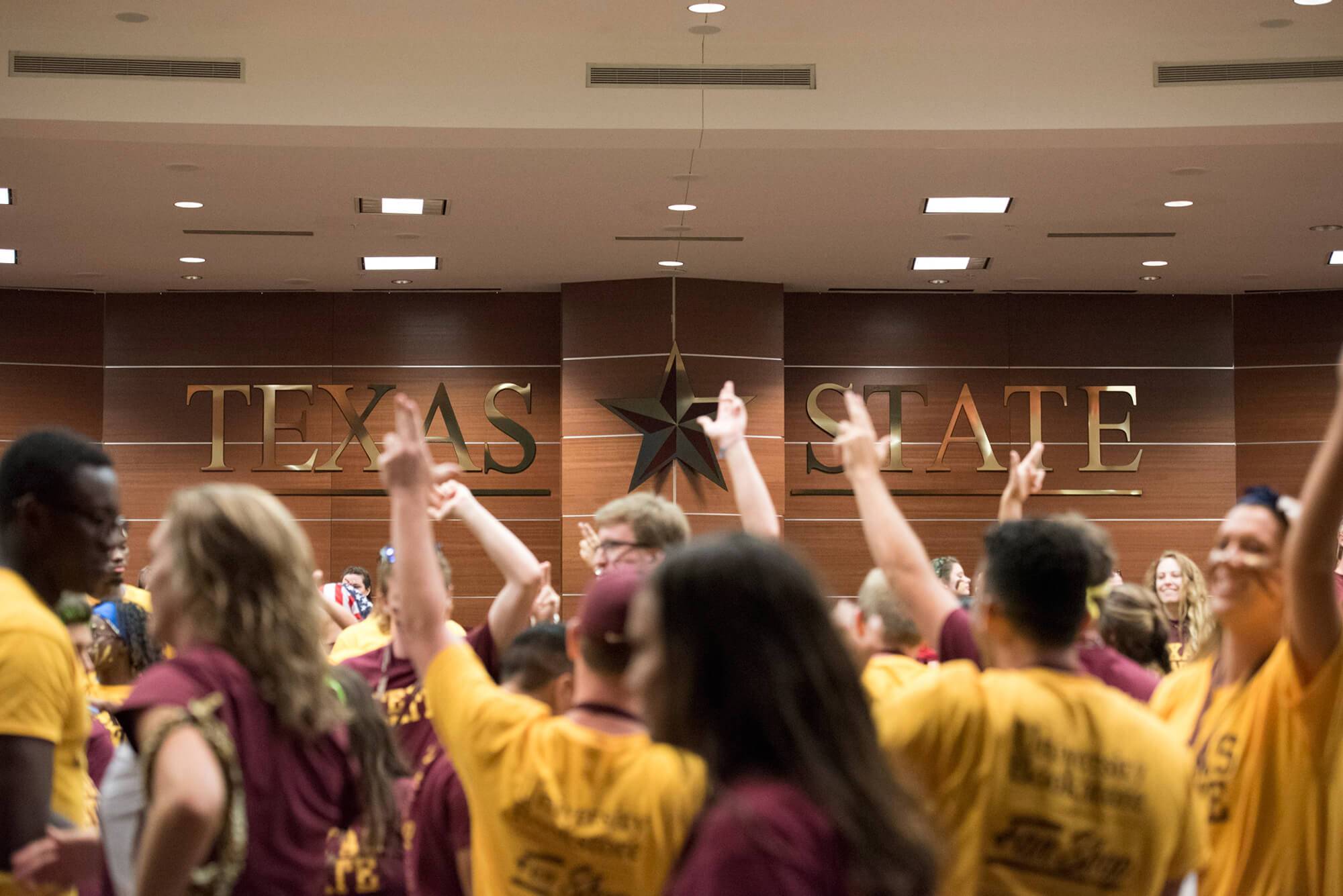The types listed here are not all-inclusive or comprehensive. This list is intended to indicate those forms of experiential learning in which students engage outside the classroom while registered for a course and under the supervision of a guiding faculty or engaged in a service of Texas State University. At times multiple experiential learning types may successfully occur during the same course or learning framework. For suggestions, concerns, or questions, please contact the EXC2EL Center, exccelcenter@txstate.edu.
Clinical Placements (Field Placements - College of Health Professions) - As part of degree requirements, qualified students report to sites providing services related to their health profession to observe and perform in the clinical setting under the supervision and mentorship of licensed practitioners known as preceptors. Conditions for placements vary by academic program. Example CHP placement details can be found in the Health Administration FAQs: https://www.health.txst.edu/ha/current-students/faqs-administrative-field-placement.html
Collaborative Online International Learning (COIL) - Collaborative Online International Learning (COIL) connects faculty and students from universities in different countries in shared online learning. Through COIL, two or more classes work together virtually to explore a topic, solve a problem, or create a product. Students gain intercultural experience without travel, and faculty build partnerships that enrich teaching and foster new scholarly and cultural perspectives. COIL supports TXST’s commitment to experiential learning. https://eccel.txst.edu/coil.html
Cooperative Education - Integrated academic and compensated work-based learning in which students alternate semesters in the classroom with semesters working in industry in their field of study. Completion earns course credit and full-time student status is retained. (Exceptions – Certain financial aid regulations influence cooperative education status.) See https://www.engineering.txst.edu/cooperative-education.html
Externships - Externships, or job shadowing, are unpaid opportunities for students to spend observation time with professionals inside various organizations to gain firsthand knowledge about different career fields. Externships are often short in duration (from a single day to several weeks). At TXST, externships through Career Services are available through BobcatShadow. See https://www.careerservices.txst.edu/bobcatshadow.html
Internships -(Course-based) An internship is a form of experiential learning that integrates knowledge and theory learned in the classroom with practical application and skills development in a professional workplace setting (across in-person, remote, or hybrid modalities). Participants consult respective departments. Also see https://www.naceweb.org/internships
Education Student Teaching (Clinical Teaching) - Qualified students apply knowledge and skills learned during the teacher preparation program while engaging in clinical practice with experienced mentor teachers at a range of levels in school settings with university instruction and supervision. See http://mycatalog.txstate.edu/courses/edst/
Education Student Teaching (Teaching Internship) - Graduate or post-baccalaureate students who have met all admittance and preparation criteria and hold a Texas probationary or intern teaching certificate apply knowledge and skills learned during the teacher preparation program and serve as teacher-of-record in a public school classroom under the supervision of university faculty and mentorship of school district personnel. See http://mycatalog.txstate.edu/courses/edst/
TXSTeacher Residency - Year-long residency for qualified teacher candidates in which clinically intensive competency-based experience combines traditional “field block” courses with an extended student teaching placement. The entire residency occurs at the same school site. See https://www.education.txst.edu/oep/resources.html
Practicum - A course of study designed for the preparation of teachers, clinicians and a range of practitioners that involves the supervised application of previously studied theory. Some programs offer in-house clinical environments for program completion while others are conducted at external sites. Example details for professional counseling at main campus are shown at https://www.txst.edu/clas/Professional-Counseling/current-students/Clinical-Practicum.html.
Education Abroad - An international travel-based pursuit in which students fulfill course credit while abroad under one of several program designs: faculty-led (taking a course abroad together with the instructor and fellow students), affiliated (taking a course individually through a third-party organization) or exchange (enrolled individually in a partner institution in another country). Program timeframes vary and tuition plus expenses apply. See https://www.educationabroad.txst.edu/
Study in America - A travel-based pursuit conducted within the U.S. in which students fulfill course credit while traveling together with the instructor and fellow students. Tuition plus expenses apply. See https://www.distancelearning.txst.edu/extension-studies/sia.html
Service-Learning Excellence - A pedagogical approach in which students’ academic and civic learning are enhanced through a combination of traditional learning in the classroom with community service outside the classroom. Projects seek to achieve reciprocity between the community partner and the students engaged in service, and student reflection is required to complete the development of learning outcomes. Courses containing such projects are eligible for the Service-learning section designation (SLSD) and faculty who design these courses are known as service-learning fellows. See https://servicelearning.txst.edu/
Leadership & Service - Curated range of elective and non-course-based activities in which students may practice leadership and civic engagement. See https://studentinvolvement.txst.edu/leadership-and-service.html
Living and Learning Community (LLC) - A group of students living together in the same residence hall based on a common interest, professional career track, or major. LLCs are supported by a dedicated faculty member and support staff of the Department of Housing and Residence Life. LLC members have an integrated experience by taking courses together and participating in co-curricular activities as a unit. See https://www.reslife.txst.edu/get-started/llcs.html
Volunteering - Students donate services to benefit an organization without expectation of compensation. Often, students grow personally and culturally. When intentionally designed within a course, students can apply learning principles to the volunteer effort. See https://studentinvolvement.txst.edu/leadership-and-service/service-opportunities.html
